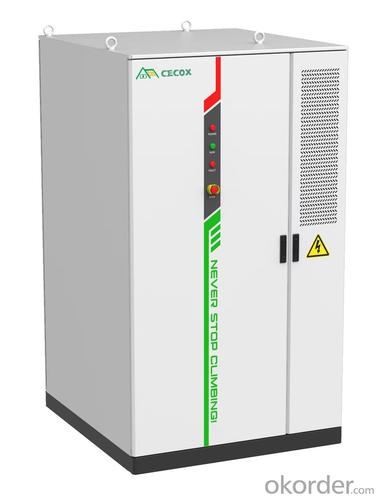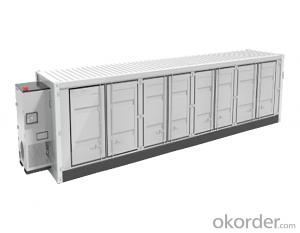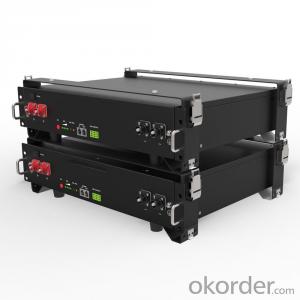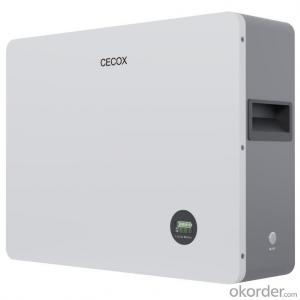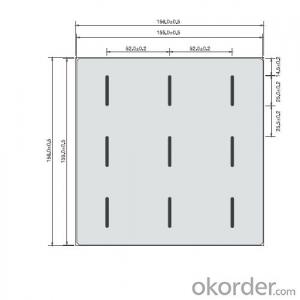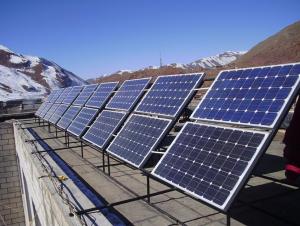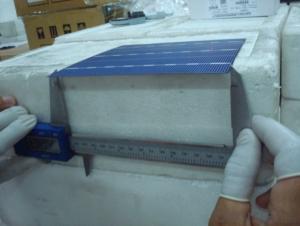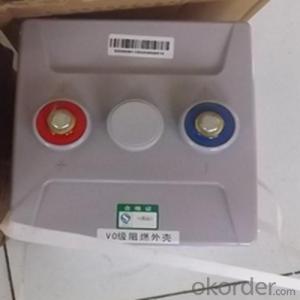Ultralight Fabric Solar Cells 100kw 233kwh 280ah Efficient and Smart C&I Liquid-Cooling Cabinet Commercial & Industrial Storage
- Loading Port:
- SHANGHAI
- Payment Terms:
- TT OR LC
- Min Order Qty:
- 5 unit
- Supply Capability:
- 200 unit/month
OKorder Service Pledge
OKorder Financial Service
You Might Also Like
Specification
Product Features
Ultimate Safety
Multistage variable diameter liquid cooling pipeline, system temperature difference ≤ 4 ℃
Micro channel equalization pipeline, PACK temperature difference ≤ 2.5 ℃
Highly automated ,CCS integrated design
Electrical multidimensional fusion perception 15-year extra long life coolant
Smart and Efficient
BMS active balancing technology improves SOC accuracy by 3% and extends system life by 20%
OTA upgrade is sent from the cloud and upgrade efficiency is improved by more than 90%
Panoramic online monitoring and scheduling
Global customized design and development services
Support virtual power plant interconnection
Flexible and Convenient
Modular design, standardized interface
Elastic expansion, multi machine parallel connection
Multi-sensor and intelligent control system
Triple level modular PCS, up to 99% maximum efficiency
Cloud and edge integrated energy storage intelligent operation and maintenance center
Quick Response
Support multi-device access and multi-user sharing
Millisecond response to power dispatch
100% pre-installed integration
Equipped with LVRT, HVRT functions, and various control modes such as PQ, VF, and networking
Technical Data
Battery Type:LFP-280Ah
System Configuration:5*1P52S
Rated Charge/Discharge Ratio:≤0.5P
Rated Capacity:233kWh
DC Rated Voltage:832V
DC Voltage Range:728 ~ 949V
AC Rated Power:100kW
AC Rated Voltage:400V±15%
Rated Grid Frequency:50Hz/60Hz
Size(W*D*H):1340*1440*2300mm
Weight:2.8t
Protection Level:IP54(PACK IP67)
Operating Temperature Range:-30 ~ 55℃
Relative Humidity Range:5% ~ 95%(Non condensation)
Operating Altitude:≤2000m(>2000m Reduction)
Fire Protection System:Aerosol/Perfluoro
Communication Interfaces:CAN/RS485/Ethernet
- Q: How do solar cells perform in areas with high levels of humidity?
- Solar cells generally perform slightly less efficiently in areas with high levels of humidity. This is because the moisture in the air can scatter and absorb some of the sunlight before it reaches the solar cell, reducing its overall power output. However, modern solar cell technologies have been developed to minimize this effect and maintain a satisfactory performance even in humid conditions.
- Q: Can solar cells be used for powering manufacturing facilities?
- Yes, solar cells can be used to power manufacturing facilities. Solar energy can be harnessed through the use of photovoltaic panels, which convert sunlight into electricity. This renewable source of energy can be utilized to meet the power demands of manufacturing facilities, reducing their reliance on traditional grid electricity and helping to reduce carbon emissions.
- Q: How do solar cells perform in high altitude environments?
- Solar cells perform better in high altitude environments due to several factors. Firstly, at higher altitudes, there is less atmospheric pollution and haze, resulting in increased solar irradiance. This means that solar cells receive more sunlight, leading to higher energy production. Secondly, the lower air density at high altitudes reduces the heat dissipation from solar cells, allowing them to operate at lower temperatures. This improves their efficiency as solar cells tend to perform more efficiently in cooler temperatures. Additionally, the cooler climate at high altitudes also helps to prevent overheating, which can degrade the performance and lifespan of solar cells. Overall, solar cells tend to exhibit superior performance and efficiency in high altitude environments.
- Q: What is the pollution of solar cells?
- the city warehouse classification storage; 5, centralized custody, waiting for the introduction of domestic waste battery recycling technology; 6, increase the size of the battery recycling; 2, regular hand-site acquisition; 3, battery classification (ordinary battery, button batteries)
- Q: How can solar cells be used in residential applications?
- Solar cells can be used in residential applications by installing solar panels on rooftops or other open areas to capture sunlight and convert it into electricity. This clean and renewable energy source can power various appliances and lighting systems within a home, reducing reliance on traditional grid electricity and lowering utility bills. Additionally, excess energy generated by solar cells can be stored in batteries or fed back into the grid, further promoting sustainability and potentially earning homeowners credits or incentives.
- Q: What materials are used to make solar cells?
- Solar cells are typically made using materials such as silicon, cadmium telluride, or copper indium gallium selenide (CIGS).
- Q: Is the Photovoltaic Cells cheap to buy?
- Compared to the other product which can generate the power, the Photovoltaic Cells are not cheap at all. However, if you take a look at all the solar cells product in the market, Photovoltaic Cells are actually comsidered to be cheap.
- Q: Can solar cells be used in cloudy weather?
- Yes, solar cells can still generate electricity in cloudy weather. While the efficiency of solar cells decreases in low light conditions, they can still capture and convert sunlight into usable energy. However, the amount of electricity produced may be lower compared to sunny conditions.
- Q: How do solar cells perform in regions with high levels of dust and sandstorms?
- Solar cells can be affected by dust and sandstorms in regions with high levels of such conditions. The accumulation of dust particles on the surface of solar panels can reduce their efficiency by blocking sunlight and creating a layer of insulation. Regular maintenance, such as cleaning the panels to remove dust and debris, is crucial to ensure optimal performance. Additionally, advancements in solar panel designs, such as anti-reflective coatings and self-cleaning mechanisms, are being developed to mitigate the impact of dust and sandstorms on solar cell performance in these regions.
- Q: What is the impact of snowmelt on solar cell efficiency?
- The impact of snowmelt on solar cell efficiency is generally positive. Snow on solar panels can reduce their efficiency by blocking sunlight and preventing the cells from generating electricity. However, when snow melts, it cleans the panels and allows them to receive more sunlight, thus increasing their efficiency.
Send your message to us
Ultralight Fabric Solar Cells 100kw 233kwh 280ah Efficient and Smart C&I Liquid-Cooling Cabinet Commercial & Industrial Storage
- Loading Port:
- SHANGHAI
- Payment Terms:
- TT OR LC
- Min Order Qty:
- 5 unit
- Supply Capability:
- 200 unit/month
OKorder Service Pledge
OKorder Financial Service
Similar products
Hot products
Hot Searches
Related keywords


